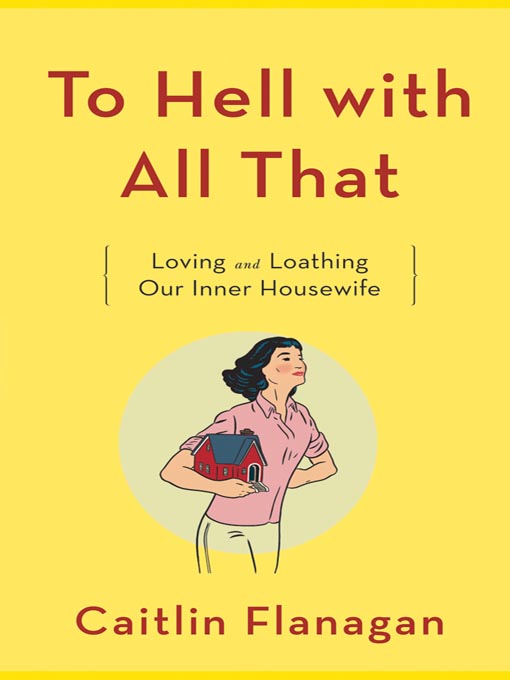
To Hell with All That
Loving and Loathing Our Inner Housewife
- اطلاعات
- نقد و بررسی
- دیدگاه کاربران
نقد و بررسی

Julia Fletcher's chipper, brisk tone gives an efficient reading of Flanagan's conflicted ruminations. Flanagan questions major and minor decisions about working, raising children, and making a home. Fletcher's articulate voice smoothes over the mélange of essay topics that Flanagan has cobbled together. Fletcher does an admirable job establishing a consistent tone to express Flanagan's often contradictory thoughts about raising children and home care. She asks, for example, whether shopping for trendy containers counts as "house-cleaning." Flanagan's prose offers some bits of humor, which Fletcher delivers appropriately, but a title that seems to promise some true irreverence about the complications of daily life ultimately remains too inward-looking to truly satisfy. R.F. (c) AudioFile 2006, Portland, Maine

February 27, 2006
Flanagan's take on why modern mothers are conflicted about their roles is so witty and well researched—she quotes sources ranging from Queen Elizabeth's childhood nanny to Total Woman Marabel Morgan—that it's easy to overlook that she offers no evidence to back up her chief notion "that women have a deeply felt emotional connection to housekeeping." Coming from someone who admits she doesn't change her sheets or clean her house (the maid does it), it's hard to take this assertion seriously. But then, while Flanagan is a staff writer for the New Yorker
and a regular essayist for the Atlantic
, she's more a polemicist here than journalist. The problem is her self-contradictions. Flanagan is fed up with what she sees as self-indulgent upper-middle-class mommies (like herself and unlike her mother's generation) who have elevated motherhood at the expense of housekeeping, which she sees as a lost art. Yet she goes into great and fascinating detail about her relationship with the nanny she hired after giving birth to twins. Flanagan is particularly disdainful of feminists who "imposed" a narrative of oppression on women. The author claims she's not a cook, but in her debut book she proves herself to be one heck of a pot-stirrer.

August 15, 2006
At times amusing, and more often intensely irritating, this audiobook offers a report on the current status of privileged housewifery in the 21st century. From childhood, Flanagan yearned to be a stay-at-home wife and mother; the only problem, it seems, is that she was not really cut out for this career. She hires a full-time nanny and starts to write magazine articles (for "The Atlantic", "The New Yorker") about the plight of the upper-middle-class housewife. The author certainly criticizes: feminists because they dare to suggest that traditional housewifery may be more drudgery than calling; current self-help gurus who suggest you parent your children as if they are corporate executives (this is amusing); and even Martha Stewart, whose major value is in offering fantasies for her readers. One -s sympathy is roused only as Flanagan makes a strong case for the importance of a mother -s full-time love and support for her children. If your library serves single parents, working women balancing family and job, and/or the poor and middle classes, look elsewhere for social commentary and practical advice. Libraries that serve a clientele who found the "Nanny Diaries" relevant and/or amusing or who have enjoyed Flanagan -s magazine articles will want to own this program." -Kathleen Sullivan, Phoenix P.L."
Copyright 2006 Library Journal, LLC Used with permission.




دیدگاه کاربران